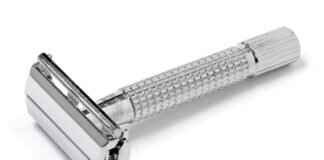In a recent development that has sent shockwaves across the political and financial landscapes, there is growing concern about possible insider trading related to tariffs. The issue has caught the attention of prominent figures such as Senator Booker, who has called for a thorough investigation by Congress. As the debate rages on about the impact of tariffs on the economy, questions about potential improprieties behind the scenes have emerged, prompting calls for transparency and accountability.
Senator Booker Calls for Investigation
Senator Booker, known for his strong stance on economic issues, has raised the alarm about the possibility of insider trading in relation to tariffs. In a recent interview, he emphasized the need for Congress to delve into the matter, highlighting the importance of ensuring fairness and integrity in financial markets. Booker’s call for an investigation has struck a chord with many Americans who are concerned about the implications of such practices on the economy and the broader society.
Expert commentator, Peter Navarro, echoed Booker’s sentiments, emphasizing the urgency of addressing any potential wrongdoing in the realm of tariffs. Navarro’s insights shed light on the complexities of trade policies and the need for transparency to maintain public trust. The collaboration between policymakers and financial experts underscores the gravity of the situation and the importance of upholding ethical standards in economic decision-making.
Possible Ramifications for Consumers and Businesses
As the debate unfolds, the implications of insider trading on tariffs are far-reaching, with potential consequences for consumers and businesses alike. The uncertainty surrounding trade policies and the specter of impropriety can erode confidence in the market, leading to volatility and disruptions in various industries. Louisiana shrimpers, for instance, are hoping for positive outcomes from tariffs, but the shadow of insider trading casts a pall over their prospects.
Moreover, the escalating trade tensions between the U.S. and China have added another layer of complexity to the situation. With Trump’s tariff decisions affecting both countries, the stakes are high for global trade and economic stability. Former U.S. ambassador to China warns that both sides will suffer in the event of further tariff hikes, underscoring the interconnected nature of the international economy and the need for strategic decision-making.
In the midst of these challenges, the role of Congress in investigating possible insider trading becomes paramount. By shining a light on questionable practices and holding wrongdoers accountable, lawmakers can uphold the principles of fairness and transparency that underpin a healthy economy. The outcome of such investigations could have far-reaching implications for the financial landscape, shaping policies and regulations to prevent future abuses of power.
As the debate continues to unfold, the call for action grows louder, with stakeholders from various sectors urging Congress to take a stand against insider trading on tariffs. The intersection of politics and finance underscores the need for vigilance and integrity in decision-making, ensuring that economic policies serve the common good rather than the interests of a select few. By addressing these concerns head-on, lawmakers can pave the way for a more just and equitable financial system for all.














